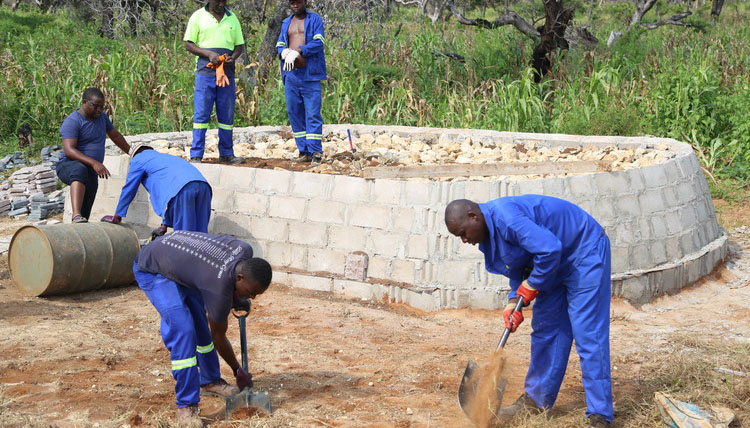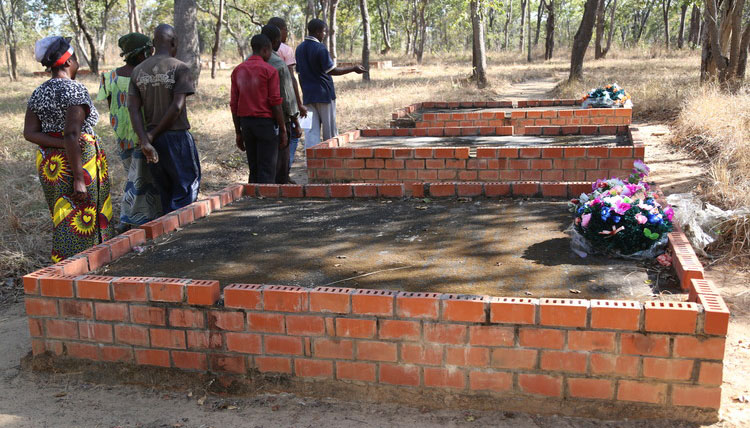
The Sunday Mail

At about this time 42 years ago, bulldozers were burying hundreds who had been massacred at Nyadzonia.
The numbers were so much that it was futile trying to dig graves by hand. And in any case, according to eye witness accounts, by the third and fourth day, human flesh was peeling off the hands of those burying the dead.
It was on August 9, 1976 when Morrison Nyathi sold out thousands of his ilk, all for the love of the silver penny.
Nyathi had been a high-ranking official in the Zanla army command structure but ambition saw him turning his back on his comrades and working in cahoots with the Rhodesian Selous Scouts to attack unarmed refugees at Nyadzonia.
Nyathi’s ambition was so gross that it over-shadowed his patriotic fervour, he did not see the blackness of his colleagues, he did not value why his fellow countrymen were being bitten by mosquitoes in the bush, far away from the comfort of home. He lost the war cause.
To him, what mattered most was his personal glory, his personal pride. Thus he hatched a plan.
Setting off from Nyadzonia, he lied that when he came back he was to bring the Zanla high command for inspection, and as such all weaponry had to be ready for cleaning.
What started off as a normal day at the camp, with preparations for
the inspection, soon turned into an orgy of violence as the Rhodesian Selous Scouts, led by none other than Morrison Nyathi, opened fire on an unsuspecting crowd that had gathered at the assembly point.
For disguise, the white Rhodesian Selous Scouts had painted their faces black, and had worn the uniform of the Mozambican army, hence their entry into the guarded camp was almost flawless.
Add to that, they had Nyathi leading and showing them the way.
When the Selous Scouts got to the assembly point, Nyathi blew the whistle, which as per tradition was a signal to gather at the assembly point. Many of them knew him as their commander and obeyed the signal.
That is when the madness began.
But before they attacked the camp, they had blown away the bridge over the Pungwe River, such that no help could come from Chimoio, the nearest town to Nyadzonia.
When word finally got through that Nyadzonia had been attacked, help and resources had to be summoned from Tete, a further distance away.
But Nyadzonia was not the only refugee, transit and military camp that suffered at the hands of Rhodesian brutality.
Mukushi girls’ camp, right in the wilderness, in the middle of Zambia, suffered an attack that smacks of the works of a sell-out. Set in the forest, right in the middle of nowhere, how and why the Rhodesians got to know of the existence of the camp can only be explained by the working of a sell-out.
Similarly, Freedom Camp, just outside Lusaka, which was attacked at about the same time as Mukushi, was also hit in a manner that pointed towards insider-trading. The works of sell-outs.
This is almost the same script with Chimoio.
But whilst all these massacres happened over 40 years ago, their significance should not be lost to the true Zimbabwean, that the country’s independence did not come on a silver plate. That there are thousands of lives that were lost for us to be independent today.
That for one to be able to vote today, someone had to sacrifice their life.
Which makes Zanu-PF’s recent victory poignant, especially as it was more defined in the rural areas, which suffered the brunt of the liberation struggle. They have the memories of the struggle, they have the experience of the struggle and more importantly they share the same values of the liberation struggle.
But with the 2018 election being water under the bridge and the stage being set for the next one, five years away, it must not be lost on Zanu-PF that in 2023, those born in 2005, some 25 years after independence, will be voting. Add to this number the other millions born between 1980 and 2005, whose political understanding of the liberation struggle might be warped.
If at the height of the liberation struggle, when mothers, fathers and children were leaving their homes to fight for the country, we could find characters like Morrison Nyathi, it should not be surprising that so many years after that struggle, such characters could have multiplied in number.
This makes the establishment of the Chitepo School imperative.
And celebrating and remembering the war dead is not peculiar to Zimbabwe – the Japanese remember the Hiroshima incident, the Germans honour those who lost their lives in both World Wars, the Americans do the same, so does the British.
But it should go beyond just remembering and honouring but also upholding the values, especially knowing what defines a nation, a people, which makes these commemorations whole.
Remembering and honouring these fallen heroes without holding to heart what they died for is a futile walk.
Talking to those who have experienced the Zimbabwean liberation struggle first-hand, you get to appreciate their thinking, that what was won by blood cannot be reversed by ink.
There are many souls, some of them who died soon after birth, and some who died in old age, but who all thought that one day they would walk into a free Zimbabwe.
Unfortunately some today would want to see that freedom as absolute, that it should be exercised to the exclusion of other people’s freedoms.
Hence the re-birth of thousands of present-day Nyathis, for no freedom shall not be absolute.





